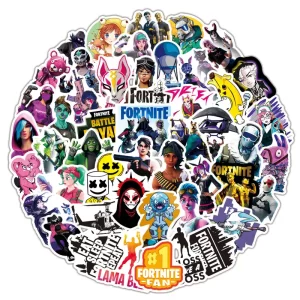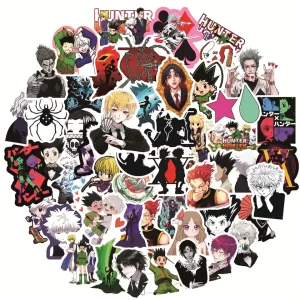What is Gamergate?
The online gaming community has been the epicenter of intense and heated discussions on significant topics, such as feminism, journalistic integrity, and sexual harassment. These are not small issues, and as you might expect, there has been a lot of reasoned, respectful discussion. Well, actually, that’s not the case at all. Instead, the battleground has been Twitter, where the hashtag #Gamergate has emerged as a central rallying point for those on both sides of the debate. The debate has become so intense that Intel has pulled its sponsorship from Gamasutra after pressure from organized groups.
#Gamergate at its core, is focused on two critical issues: the treatment of women in gaming and ethics in games journalism.
So, what exactly is #Gamergate? As with most hashtags, it has taken on a life of its own, and its meaning can differ depending on who you ask. However, at its core, it’s focused on two critical issues: the treatment of women in gaming and ethics in games journalism. The current iteration of this ongoing issue began in August, when indie game developer Zoe Quinn and gaming critic Anita Sarkeesian were subjected to appalling online harassment. The same type of abuse was then directed at award-winning games journalist Jenn Frank and writer Mattie Brice, who both decided to stop writing about games. The FBI has even launched an investigation into the harassment of game developers.
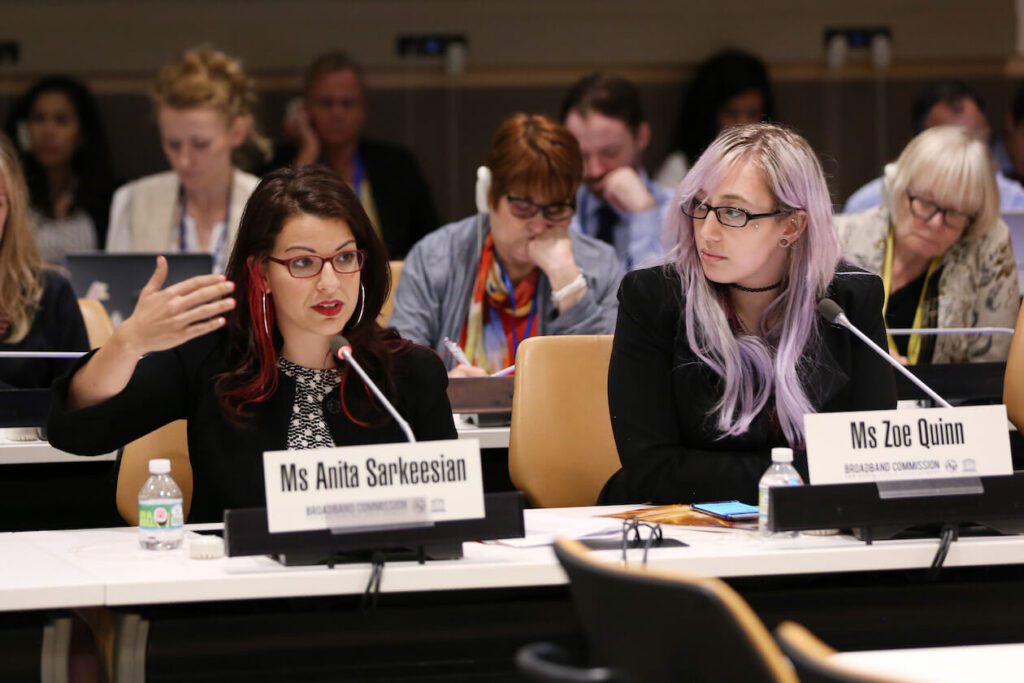
The second issue that #Gamergate has brought to light is the question of ethics in games journalism. Some Gamergaters believe that the close relationship between indie game developers and online gaming press has led to a lack of impartiality. Additionally, some feel that the gaming press’s focus on feminism and the role of women in the industry has come at the cost of balanced coverage of games. For example, sites such as Polygon, have been criticized for focusing too much on these topics. The debate reached a new level of intensity after programmer Eron Gjoni accused Quinn of infidelity with Nathan Grayson, a writer for Kotaku, a major gaming website.
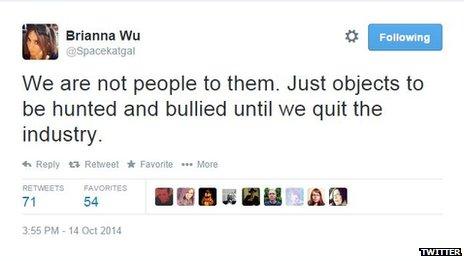
The Gamergaters have valid concerns about the changing face of video game culture, but their message has often been drowned out by trolls spewing hate speech, frequently directed at women. It’s essential to remember that the issues raised by #Gamergate are significant, and it’s important to continue the discussion respectfully and productively.
Who is Anita Sarkeesian?

Anita Sarkeesian is a prominent feminist media critic who writes and hosts a popular YouTube show called “Feminist Frequency.” A few years ago, she started a Kickstarter campaign to raise funds for a series on female characters in video games that examined the harmful tropes many of them embodied. The campaign was extremely successful but also brought out a lot of misogynistic backlash, including a game in which players could virtually assault Sarkeesian.
While Sarkeesian has continued releasing videos on various media, she has experienced harassment and smear campaigns. One of her recent gaming videos coincided with the Zoe Quinn scandal, leading to even more harassment than usual. The threats became so specific and extreme that Sarkeesian went into hiding, fearing for her life.
In response to the threats against Sarkeesian, director Joss Whedon and actor Wil Wheaton spoke out in support of her, with Wheaton sharply criticizing the treatment she had received from some gaming community members. The situation led to a series of essays on the “death of the gamer” as an identity, which some Gamergaters viewed as an attempt to silence and erase them.
Who is Zoe Quinn?

Zoe Quinn is a game designer who is best known for creating Depression Quest, which is co-created with Patrick Lindsey and Isaac Schankler. The game uses a multiple-choice text adventure to convey what it’s like to have depression. Although it’s a powerful game, it doesn’t have much traditional gameplay because it’s based on selecting options from a menu.
At one point, Quinn was in a relationship with a programmer named Eron Gjoni, which ended in a messy breakup. Gjoni then wrote a series of online posts about the breakup and shared personal information about Quinn, which led to a lot of backlash. Gjoni has since distanced himself from the situation.
Gjoni accused Quinn of cheating on him, and he claimed that one of the individuals she cheated with was Nathan Grayson, a writer for the popular gaming website Kotaku. Kotaku investigated the claims and found no evidence of any wrongdoing on the part of Grayson or Quinn.
Following the allegations, thousands of comments related to the matter were deleted from online forums like 4chan and Reddit. Additionally, a DMCA takedown notice was filed against a YouTube video that contained footage from one of Quinn’s games. She was then subjected to constant harassment via Twitter, phone, and other modes of communication.
Some gamers were frustrated that the press did not cover Gjoni’s allegations more extensively, accusing them of being biased towards Quinn. However, it’s not typical for journalistic outlets to report on the personal lives of the individuals they cover unless the situation is significant in some way.
In the weeks following the initial incident, #Gamergate supporters argued that focusing on Quinn was a diversion tactic that aimed to steer attention away from journalistic ethics. However, Quinn herself demonstrated that a significant amount of the backlash was motivated by an attempt to target her specifically, as evidenced by her experience in an #Gamergate IRC chat room.
What is GameJournoPros

GameJournoPros was a private email list for writers covering the gaming industry and some individuals within the industry to discuss various topics and issues of interest. The list was founded by Kyle Orland of Ars Technica and essentially functioned as a trade discussion group. The existence of the list would not have been a significant issue if it had been uncovered at a different time. However, given the timing of its discovery, some #GamerGate supporters saw it as evidence of collusion.
While Orland apologized for some of the poorly phrased emails uncovered, he did not apologize for creating the list itself. He claimed that the list had helped him cover the industry more effectively.
What’s the Point of Gamergate?
The ultimate goals of the #Gamergate movement are unclear and differ based on the supporter. If it was to bring attention to Quinn’s personal life, it has already happened. Progress is being made if it was to create better ethical disclosures in online journalism. The Escapist is drafting new guidelines, while Kotaku is forbidding its writers from financially supporting independent designers on Patreon, and Polygon requires disclosures of this sort of support. According to some supporters, the movement has already successfully promoted skepticism about video game journalism, given the increased attention the topic has received.
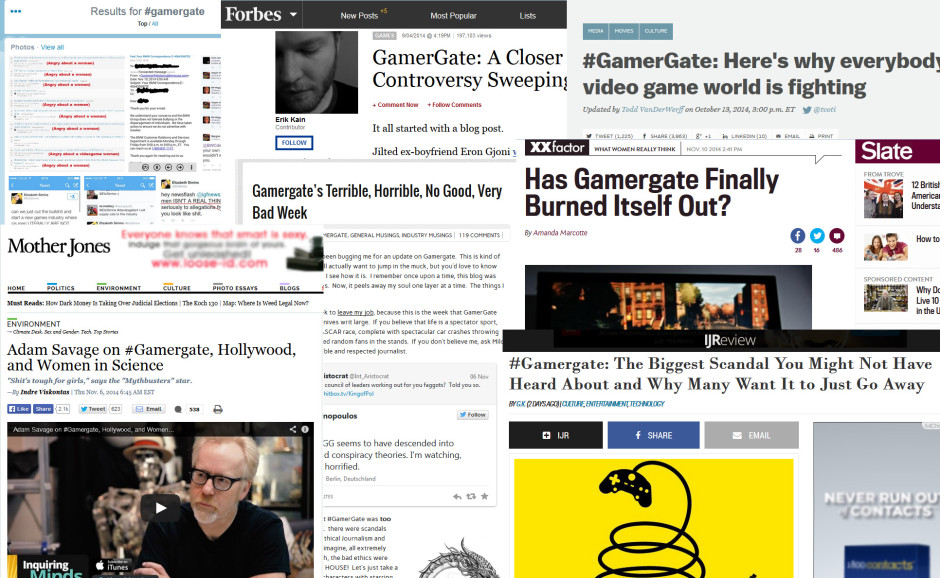
However, many of the movement’s goals are nebulous and almost impossible to achieve. “Better objectivity” often seems to mean a return to the days when the gaming press was filled with borderline press releases about upcoming games. There is also a desire for gaming sites to stop covering issues of female representation in games, but this is unlikely to happen given the increased prominence of women as both game players and people within the industry.
#Gamergate supporters have found success in targeting advertisers on the sites they find troublesome. Intel dropped its ads from Gamasutra, and Gamergaters have since focused on companies such as Nvidia and Sears. However, in essence, #Gamergate has only “won” superficially, as the movement is probably too big to achieve or even concretely articulate all of its goals.
What Should the Scope of Game Journalism be?
A significant part of the #Gamergate debate stems from a disagreement between what readers of gaming media believe video game journalism should cover and what it actually covers. While cultural journalism, including video game journalism, must follow traditional journalistic standards, such as reporting factual information and avoiding plagiarism, its very existence denotes a kind of built-in critical judgment. If a cultural journalist writes about a game, movie, or book, the implicit assumption is that it is worth readers knowing about on some level.
Please read our take on the death of games journalism.
However, this leads to a disconnect between the primary audience of gaming publications and those who write about games, particularly when nontraditional games are involved. For example, the game Gone Home received praise from the gaming press, but some critics argue that it was only appreciated because it engaged with LGBT issues. To address this, some critics suggest creating an official genre, such as “Walking Novels” for games like Gone Home and “Interactive Novels” for games like Depression Quest.
All branches of journalism must navigate the question of friendships between journalists and those they cover, but it’s particularly acute in the gaming press. It evolved from an enthusiast press, which was written by people who loved gaming for people who loved gaming and was often a publicity arm of the games industry. However, the rise of online outlets has been a boon to good, objective games journalism, although it has led to more articles about the poor relationship between individual titles and the industry as a whole with women and minorities.
These articles are often poorly received by the core audience, leading to a divide between those who want to hear about how video games are awesome and those who want forthright coverage of problems within the industry. While having close relationships between reporters and sources has led to better coverage of these problems, it has also led to situations where journalists have known about newsworthy events but haven’t reported on them.










